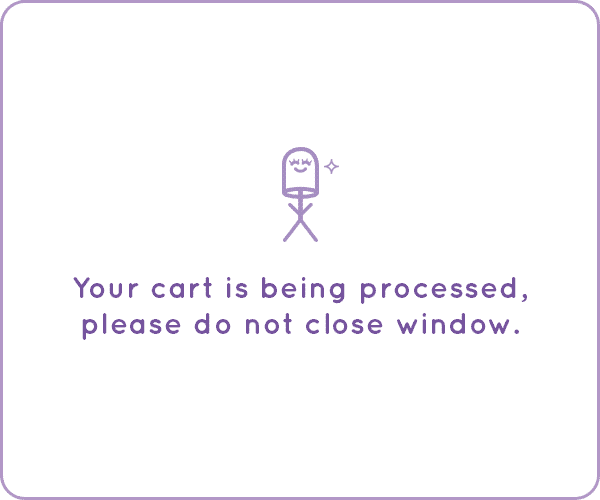No products in the cart.
Uncategorized
The Default Mode Network: Make Happiness the Default
The human brain is made up of several complex systems which dictate the way we think, process, and live. Within these systems is The Default Mode Network (DMN), a group of brain regions that become active when we are not engaging in a specific task. This network can be referred to as the brain’s “resting state,” correlating with self-referential thinking as well as the mind’s tendency to wander.
Activity in the DMN is known to play a prevalent role in mental health, with DMN abnormalities being associated with several psychiatric disorders such as anxiety, depression, and schizophrenia. Self-referential thinking can take on different forms, involving self-reflection, self-projection, and self-evaluation. This thought process is a normal part of human cognition, but can easily be destructive in nature when it is absorbed in excessive amounts. It is in this process where we are most likely to analyze things we don’t like about ourselves, things we regret about our past, and other intrusive thoughts that can make a negative impact on our self-esteem. When self-referential thinking becomes maladaptive it can become debilitating, including those hypothetical scenarios and conversations that keep us up at night. Self-referential thinking is not always an adverse occurrence though, whereas it is also the process that allows us to assess our goals, picture our future, and essentially offer us further insight into our own inner-dialogue.
It can also be implied that the DMN plays an active role in rumination, a repetitive thought-pattern often relating to one’s issues or supposed shortcomings. Rumination involves dwelling on negative feelings such as excessive worry or guilt, and can quickly become a serious issue. The rumination thought-process on a common basis can directly worsen existing mental health conditions such as depression and anxiety, and may assist in the development of new mental illnesses as well.
Emotion regulation can also be associated with the DMN, relating to one’s ability to process and act on emotions sufficiently. When we lack the ability to modulate our emotions accordingly, we are more likely to act on impulse opposed to thinking before we speak. Acting on emotions without managing them first can at times result in emotional outbursts, including conflictions with others that may not be necessary. DMN abnormalities can cause these irregularities in emotions to occur, reasoning with why certain DMN activity may put people at risk of developing mood disorders such as major depression and bipolar. The relationship between these two functions is still not fully understood, though we can speculate that the DMN has an ability to influence emotions in a variety of ways through both repetition and negative projection.
Closely associated with emotion regulation is social cognition, which dictates our ability to interpret and understand information in social contexts. Although the DMN is activated when we are not engaged in our external environment, how we utilize our default activity can affect our social behavior as emotions are more commonly evoked in social scenarios. The process of regulating emotions also goes hand in hand with how we interpret the emotions of others, which plays a crucial role in the realm of social interaction. Abnormal DMN activity can inhibit our ability to digest social information properly, causing a potential deficit in social cognition. When our social cognition is functioning normally, we are able to take advantage of being part of a social setting or group. This entire cognitive process allows us to process, store, and utilize information about others, which is crucial when it comes to the interaction portion of social settings. A big portion of this social behavior may also allude to something we know as empathy. Empathy is the ability to share the emotions of others, and to essentially put yourself in the shoes of someone else in order to better understand them. Although research is yet to fully indicate the direct relationship between default activity and empathy, some studies have suggested that hyperactivity of the DMN may negatively correlate with empathy. These suggestions could be influenced by the idea that an egocentric bias could negatively affect our ability to resonate with the experiences of others. In contrast, studies have also shown that self-referential thinking is necessary for empathetic response, proving the complexity of the DMN and the contradicting elements that vary depending on how your own personal default network works.
The complexity of the DMN network is verified further as we understand that the network is not one single entity, but a compilation of different brain regions that work as a team to support different cognitive functions. So although the DMN is said to be rather consistent across all individuals, it is likely that certain regions will function differently depending on the person as well as the situation at hand. For example, it is presumed that DMN activity will look different in individuals with psychiatric disorders in comparison to those who do not.
When we take into account the various factors involved with DMN activity, you might be wondering how we can take control of this complex network and potentially even use it to our advantage. Unfortunately we cannot control our DMN activity directly, nor can we shift our habitual thinking at the flip of a switch. What we can do though, is work on our ability to modulate the network activity through mindful cognitive strategies. One of the most powerful and well-known ways to effectively decrease DMN activity is through meditative practice, which has been shown to increase connections in other brain regions associated with cognitive control. A study published in the Proceedings of the National Academy of Sciences found there was a significant reduction in DMN activity in individuals who practiced mindfulness meditation, in comparison to those who did not. It has been suggested that just one mindfulness meditation session can decrease activity in DMN, making meditation an effective tool in lessening negative thought patterns that no longer serve us.
There might not be too many ways to lessen DMN activity, but fortunately meditation is not the only proven way to mitigate it. Psilocybin can directly impact and decrease activity in the DMN, standing as one of the most prominent reasons for its undeniable therapeutic impact on the human brain and mental health. A 2021 study published in the journal “Human Brain Mapping” found that microdosing psilocybin was associated with decreased DMN function, increasing connectivity in several other brain regions. Researchers have suggested that the reduction of DMN activity could be due to the other effects that microdosing generates, such as enhanced creativity, openness, and presence. When we think about the therapeutic benefits of microdosing and meditative practice, it becomes clear that the two walk hand in hand steadily. Despite the complexity of our Default Mode Networks, it seems apparent that there are only a few ways to slow it down or eventually gain more control of it. Altered states of consciousness are the main catalyst of decreased DMN activity, which can very well be achieved through both psychedelic medicine, and meditative practice.
The key word in this context is practice. When it comes to the integration of mindful habits or beginning a new healing journey, the more time you put in is the more benefit you will take out. Depending on the goals you wish to achieve, it may take some time to begin witnessing long-term improvements. The consistent practice of meditation will allow one to deepen their meditative state, where in a deepened meditative state is when one can really watch the magic flourish. Because psilocybin is known to enhance presence and increase mindfulness, the addition of microdosing could be useful for those seeking to deepen their practice. Another incredible all-natural tool that single-handedly deepens meditative states is the impressive Reishi mushroom. Reishi is well known for its adaptogenic qualities, allowing the body to enter a state of calm much easier by adapting to common stressors. Things like stress and anxiety can make meditation and other healing methods such as microdosing more tasking, whereas Reishi mushrooms could have the potential to make these practices much easier on the high-strung mind. We are fortunate to have the informative research we have today on ingredients such as these, as it allows us to piece together harmonizing ingredients that best contribute to desired wellness goals such as these.
Several studies have shown that decreased DMN activity can correlate with improved task management as well as improved cognitive performance, more specifically towards tasks that involve a wider attention span or deeper realm of focus. The same activity reduction can also aid in the mitigation of anxiety and depression, as the processes of self-referential thinking and rumination can begin to neutralize. So although the existence of Default Mode Networks are necessary for thoughts relating to self-awareness, memories, and creativity—we can reap the positive elements of the default network more effectively when we use it to our advantage.
The powerful benefits involved with mindful practice extends even further DMN activity, and can take healing journeys to the next level in ways nothing else can. If mindfulness is something you hope to integrate further, stick around for our next article where we discuss more effective ways to master mindfulness and get your inner peace back.
Sources:
https://www.frontiersin.org/articles/10.3389/fnhum.2012.00189/full
https://www.sciencedirect.com/topics/neuroscience/default-mode-network
https://www.pnas.org/doi/full/10.1073/pnas.0812686106?doi=10.1073%2Fpnas.0812686106
https://www.frontiersin.org/articles/10.3389/fnhum.2014.00074/full
https://pubmed.ncbi.nlm.nih.gov/29363477/
https://www.psicothema.com/pdf/4456.pdf
https://www.pnas.org/doi/10.1073/pnas.1112029108
https://journals.sagepub.com/doi/full/10.1177/02698811221092508


